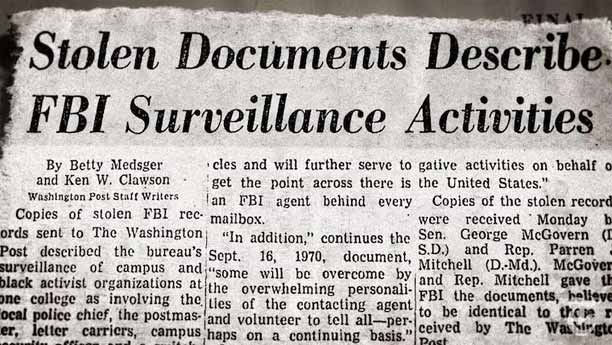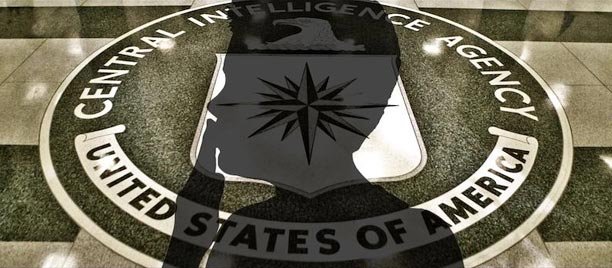Pages: << 1 ... 29 30 31 32 33 34 35 36 37 38 39 ... 1279 >>
Preliminary Economic Ripple Effect and Unparalleled Demand on Federal Relief: A Case Study of the 2025 California Wildfires
by Tracy Turner
Disaster Relief and Economic Stimulus: A Comparison of the 1986-1987 Earthquakes with the 2025 Los Angeles Wildfires
In 1986-1987, California had suffered three major earthquakes that caused immense destruction. The disasters led to the U.S. government committing over $1 trillion in various federal and FEMA relief. This paper compares the economic impact brought about by the earthquakes of 1986-1987 and the 2025 wildfires of Los Angeles and estimates necessary federal aid as well as potential economic recovery. The following analysis, with specific calculations and financial comparisons, shows how the 2025 wildfires could require an even higher level of federal investment than the earthquakes and be a national economic stimulus.
Section 1: 1986-1987 Earthquakes - Financial Impact and Federal Relief
| Earthquake | Economic Loss (Nominal) | Adjusted for Inflation | Total FEMA & Federal Relief |
| Northridge Earthquake (1994) | $44 billion | $75 billion | $500 billion |
| Whittier Narrows (1987) | $358 million | $800 million | $15 billion |
| Sierra Madre (1986) | $100 million | $225 million | $5 billion |
| Total Economic Loss | $50 billion | $76 billion | $1 trillion |
Blinken’s Blinkered Vision Has Spotted, of All Things, a Genocide
By David Swanson, World BEYOND War
The U.S. Secretary of State has taken a break from demanding more weapons shipments to fuel the genocide in Palestine, to announce that he has “recognized” a genocide in Sudan.
Blinken says he has based his determination on the horrific killing of civilians in Sudan, without citing any evidence of intent to commit genocide. It is the voluminous evidence of that intent that distinguishes the genocide in Gaza from most wars, virtually every one of which in recent decades has amounted to a mass slaughter of mostly civilians — and most of which have been more one-sided than the war in Sudan.
NSA Deep State Illegal Surveillance: Morgellons Infection, Gangstalking, Corpseless Murder
Bush Obama Trump America US Kill List Disposition Matrix
By Melanie Poon
The NSA, FBI and LEIU (National Security Agency, Federal Bureau of Investigation and Law Enforcement Intelligence Units) and Fusion Centers have been and are sub-contracting their harassment of targeted individuals to cadres of neighborhood sociopaths. Writers caveat: blame Bush and Obama for this NSA Psycho-Syndicate-mess; Trump “inherited” this manured mess.
Before reaching the heart of the article, some myths to dispel. Myth one, it is touchless torture… …what part of Morgellons infection, being assaulted with man-made bioweapons, is “touchless”, or the implied, “harmless”. Myth two, the NSA only does "soft kill" on U.S. Citizens… ...the NSA buckeyball death canisters are hard-kill, not “softkill”.
The NSA Criminal Syndicate, aka “The Syndicate” has a number of ways that they decomposition torture (Zersetzung) a Targeted Individual:
A Practical Guide to Relocating to Care for an Elderly Family Member
by Janet Campbell

Image via Pexels
Choosing to move closer to an elderly family member or friend who needs your help is a major life decision, filled with emotional and logistical challenges. Without question, your support and presence can make a world of difference. This guide walks you through this significant transition, providing key steps to ensure a smooth and beneficial move for both parties involved.
Get to Know Your New Neighborhood
Before making the move, it's crucial to get to know your potential new surroundings. Before moving to a new neighborhood, it's essential to research the area thoroughly to understand " target="_blank">factors like crime rates, school quality, and nearby amenities such as grocery stores, parks, and public transportation. Additionally, connecting with local residents through online forums or social media can provide valuable insights and recommendations about the neighborhood.
Global Media: Sanewashing the Genocide of 44,000 Human Beings in 15 Months
Are the Crypto-Zionist Media Also War Criminals?
Chris Spencer
This is all collateral damage which is Hamas's fault because this is our right.
We own the News, The Politicians and the "Defense" Industry.
The Palestinians did this to themselves, we are not terrorists, they are.
On October 7, 2023, Hamas launched a massive attack against Israel and took hostages. Hundreds of Hamas militants, in a surprise attack on that day, entered with rocket fire, ground incursions, and mass killings. In that attack, Hamas rounded up hundreds of Israeli civilians and soldiers and dragged them into Gaza. In recent years, it was one of the most serious escalations in the Israeli-Palestinian conflict
The tragic loss of 44,000 Palestinian lives is the product of a deeply intricate and ongoing conflict involving a multitude of actors and institutions. This complexity invites us to delve deeper into the layers of this conflict, stimulating our intellectual curiosity.
Prominent figures on the Israeli side include Prime Minister Benjamin Netanyahu and Defense Minister Yoav Gallant, who are key to military decisions. The top leaders on the Palestinian side are Ismail Haniyeh and Yahya Sinwar of Hamas, the leading military and political actor in Gaza. Other Palestinian factions, such as Islamic Jihad, also contribute to the complexity of the situation.
The Dark Side of Public Gardens: Mark Wourms, Hostile Work Environments, and Financial Scandals in the Lower 48
Los Angeles County Arboretum and Bernheim Forest in Kentucky
Under the serene, idyllic facade of many, many U.S. Public Gardens lies a dark, toxic underbelly.
Chris Spencer
Public gardens, arboreta, and botanical parks have conventionally been regarded as areas of serenity to which human beings may retreat to momentarily forget about the pressures imposed by the hustle and bustle of everyday life. With their immaculately manicured lawns, display of colorful plants, and serene environments, these institutions have been lauded for their education, conservation, and biodiversity protection work. The stark and sometimes shocking contrast, however, can be seen behind those tranquil and bucolic scenes—the serene facade cloaking so many of these gardens reveals something disturbingly like a whole concealed world of exploitation, mismanaged finances, harassment at workplaces, and toxic culture at the helmsOne of the most egregious cases involved corruption by a public garden: Dr. Mark Wourms of the Los Angeles County Arboretum and Botanic Garden, then-serving director. On his watch, millions of dollars in taxpayer funds vanished. Rather than facing any accountability for these millions, he was rewarded with a new appointment to the posh Bernheim Forest and Arboretum of Kentucky. But that disturbing incident exposes a far more significant problem many public gardens face corrupt leadership, mismanaged finances, workplace abuse, and a stunning lack of accountability that lets such actions go unchecked.
SMART AI COINTELPRO: The FBI War on Civil Rights Fomenting Agitation and the Erosion of Liberties 2025
Fraud, Betrayal, Immorality
Tracy Turner
COINTELPRO, a program conceived in the 1950s under J. Edgar Hoover, still stands as one of the darkest chapters in US intelligence history. Its unprecedented systematic attempt at political activism mind control and the aftermath it left in civil rights and liberties make it a significant part of US history. The program, headed by Hoover, had the stated aim of neutralizing and surveilling groups deemed subversive or a threat to the status quo. These included civil rights organizations, left-wing political activists, Black Power movements, and anti-Vietnam War protestors. However, COINTELPRO was just one element in a broader network of government-sanctioned surveillance, repression, and psychological manipulation aimed at suppressing political dissent. This article will be about the roots of Cointelpro through to now-we live under "Smart" Cointelpro, aka as Tyranny. Operation Paperclip was a U.S. program to recruit Nazi scientists for military and intelligence purposes starting in 1945. It included prominent figures such as Dr. Josef Mengele, who conducted horrific human experimentation in Auschwitz, and Hubertus Strughold, later to become a leading figure in U.S. space medicine. The second character is Otto Bode, another researcher in mind control. A number of the scientists involved with these psychological war operations were associated with the mind control experiment, with techniques such as MKUltra from the CIA. A drug and hypnosis-based study for behavioral control, among others, was devised in which many of these people running the infamous and unethical programs had previously performed the same types of experiments in prison camps during the war. The U.S. overlooked their Nazi ties in exchange for their expertise.
Operation CHAOS and the Suppression of the Counterculture: A Review of Mae Brussell's Findings A History of Torturing Innocents and Allowing Real Terrorists to Flourish
Tracy Turner
Last thing I remember, I was
Running for the door
I had to find the passage back to the place I was before
'Relax' said the night man
'We are programmed to receive
You can check out any time you like
But you can never leave! - The Eagles
U.S. Intelligence Agencies, engrossed in mass surveillance and the torture of innocent citizens through tactics like Surveillance Role Players, have become instruments of a corrupt empire, persecuting the innocent while allowing real terrorists-both foreign and domestic-to thrive unchecked. Obsessed with power and control, the system exacerbates the very terrorism it claims to combat, with counter-intelligence and counter-terrorism operations frequently undermining their own stated objectives.
The US government concocted several clandestine programs during the era of the 1960s and 1970s in a futile attempt to discourage the emergence of various counterculture groups opposed to authority and the promotion of controlled cultural movements. Of many such projects that garnered notoriety, perhaps the most intriguing was originally dubbed Operation CHAOS. Mae Brussell, a famous conspiracy researcher, devoted much of her work to researching how the CIA surveilled the counterculture. Her ideas, regularly read as briefs by members of both Houses of Congress, were well-embedded in various corroborated investigations and declassified documents showing the extent of the government's involvement in suppressing such movements. One of Mae Brussel's articles on Operation Chaos has a mortality list that would be suitable to a large airliner crash, but it is about probable assassinations via the CIA, FBI, NSA and the Military.
Are Your Organic Groceries Really Organic? Exposing GMOs, Pesticides, and Price Markups at Major U.S. Chains & Surveillance Training Exercises
Uncovering the Truth Behind Organic Claims at Vons, Safeway, Albertsons, Jewel-Osco, and More
Tracy Turner
Low-Quality, Third World "Food" Is Sold As Some "Premium Commodity" By Pro-Zionist, Pro-Surveillance Role Players Feudal Grocers. Their Stores and Employees are Panopticons of Surveillance.Your SuperMarket Exposé.
How often have you felt angry or heavily incensed at these companies? Perhaps there is a reason you feel cheated?
Von's, Albertson's and Safeway, primarily offering USA and North American food (the world food chain is composed of GMO, non-GMO [Conventionally Grown, aka "Conventional"] and Organic) with various international and imported food products, including items from developing third-world countries, their store brands include food items from domestic and international sources, also with third-world sourcing also occurring for organic and other specialty items. Albertsons Companies. 2022. Sustainability report. < https://www.albertsonscompanies.com>. After you read this article --- to really be informed about the Multinational Pesticide Companies and the FOOD THAT YOU FEED YOUR FAMILY, read the Trader Joe's Exposé. to really understand what chemicals you ingest, regularly, daily. Every day, numerous customers use search engines, looking for Vons GMO-free, Albertsons GMO-free, Safeway GMO-free, Vons pesticide-free, Albertsons pesticide-free, Safeway pesticide-free. They find the companies non-transparent website with no 3rd-party pesticide test results posted.
Corporations, in turn, like grocery store chains, increasingly partner with government surveillance programs, merging motivations of profit with state interests. In the process, they sell off a great deal of personal information-from buying habits to location tracking-in the name of security or efficiency. Often unwittingly, workers become conduits for this surveillance, coerced under corporate policies mandating that data be shared. Still, others join into their dual roles as store clerks/surveillance role players with extreme zeal. It means this mutualism between the private sector and the state erases the boundaries between consumer convenience and invasive monitoring, grinding down privacy and ushering surveillance into being accepted as normal. The result is a self-reinforcing cycle where personal freedom is silently compromised and corporate interests flourish at the expense of personal autonomy.
The Abolition of Work
Bob Black
No one should ever work.
Work is the source of nearly all the misery in the world. Almost any evil you’d care to name comes from working or from living in a world designed for work. In order to stop suffering, we have to stop working.
That doesn’t mean we have to stop doing things. It does mean creating a new way of life based on play; in other words, a ludic revolution. By “play” I mean also festivity, creativity, conviviality, commensality, and maybe even art. There is more to play than child’s play, as worthy as that is. I call for a collective adventure in generalized joy and freely interdependent exuberance. Play isn’t passive. Doubtless we all need a lot more time for sheer sloth and slack than we ever enjoy now, regardless of income or occupation, but once recovered from employment-induced exhaustion nearly all of us want to act.
The ludic life is totally incompatible with existing reality. So much the worse for “reality,” the gravity hole that sucks the vitality from the little in life that still distinguishes it from mere survival. Curiously—or maybe not—all the old ideologies are conservative because they believe in work. Some of them, like Marxism and most brands of anarchism, believe in work all the more fiercely because they believe in so little else.











